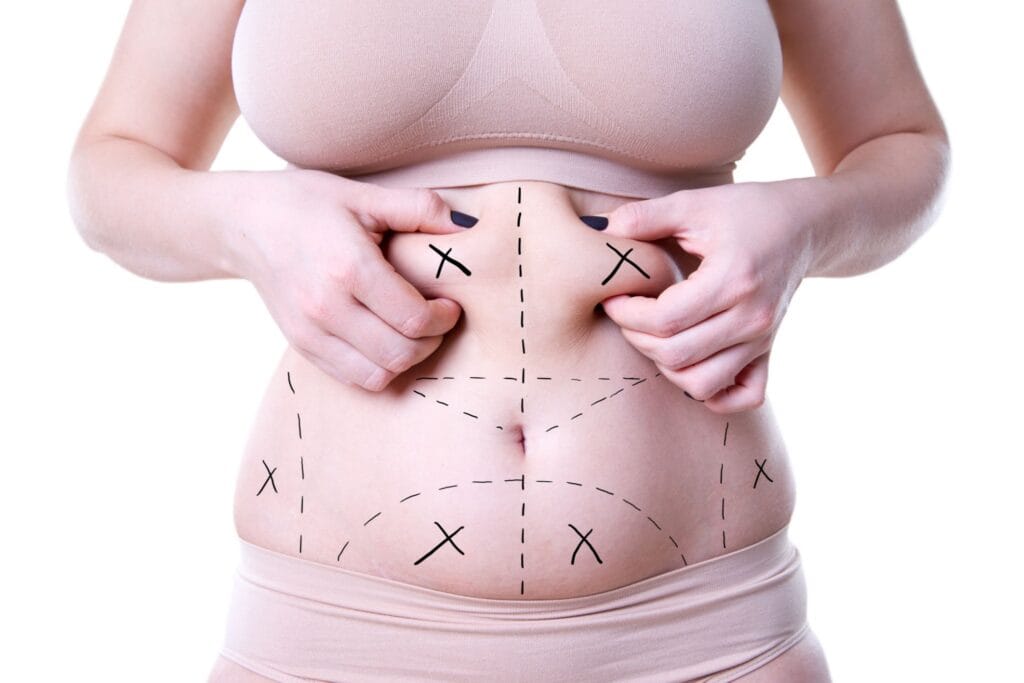Liposuction is a surgical procedure designed to remove stubborn fat deposits from specific areas of the body. While many patients seek it for aesthetic improvement, a common question arises: does liposuction lead to significant weight loss? The answer is nuanced and depends on several factors. This article clarifies the relationship between liposuction and weight change.
Table of Contents
Liposuction: Weight Loss Expectations
Liposuction is not a weight-loss solution. It’s a body contouring procedure. The primary goal is to sculpt and refine the body’s shape by removing localized fat accumulations that are resistant to diet and exercise. Patients should not enter liposuction expecting dramatic weight reduction. The amount of fat removed is limited by safety considerations and individual patient factors.
Realistic expectations are crucial for a positive outcome. A significant weight loss is unlikely, and focusing on this aspect can lead to disappointment. Instead, patients should concentrate on achieving a more aesthetically pleasing body contour. Open communication with your surgeon about your goals is paramount to setting realistic expectations.
The procedure targets specific areas, such as the abdomen, thighs, hips, or chin. It’s important to understand that liposuction will not address overall obesity. Patients with a high body mass index (BMI) may be advised to lose weight through diet and exercise before undergoing liposuction for optimal results and safety.
Success hinges on realistic expectations and adherence to post-operative instructions. Patients should understand that liposuction is a tool for body sculpting, not a shortcut to a significantly lower weight. The focus should be on improving body contours, not achieving a drastic reduction on the scale.

Fat Removal vs. Overall Weight
The fat removed during liposuction is, in fact, weight. However, the amount removed is typically relatively small compared to the patient’s total body weight. The weight loss experienced immediately after the procedure is primarily due to the fluid loss associated with the surgery and the removal of fat cells. This is temporary.
The volume of fat removed is determined by several factors including the patient’s overall health, the areas treated, and the surgeon’s assessment. It’s crucial to understand that liposuction doesn’t reduce the number of fat cells in the body overall; it simply removes them from specific areas. The remaining fat cells can still increase in size if the patient gains weight post-surgery.
The key distinction is between localized fat reduction and overall weight loss. Liposuction addresses the former, not the latter. Patients who expect significant weight loss from liposuction are likely to be disappointed. Maintaining a healthy lifestyle after the procedure is vital to preserving results.
Weight loss, if any, is minimal and should not be the primary goal. The focus should remain on achieving a more sculpted and aesthetically pleasing physique. Remember, the procedure targets localized fat deposits, not overall weight reduction.
Immediate and Long-Term Weight Changes
Immediately after the procedure, patients will experience a weight reduction due to fluid loss and fat removal. This weight loss is temporary and doesn’t reflect true fat loss. Fluid retention is common post-surgery and will subside over time.
In the weeks following liposuction, some patients may experience a slight additional weight loss as swelling decreases. However, this is not a significant reduction and shouldn’t be interpreted as substantial weight loss. The long-term weight change is largely dependent on the patient’s lifestyle choices.
Long-term weight maintenance is crucial for preserving the results of liposuction. Gaining weight significantly after the procedure can negate the effects and lead to fat accumulation in other areas. Maintaining a healthy diet and regular exercise is essential.
Ultimately, the long-term effect on weight depends entirely on the patient’s commitment to a healthy lifestyle. Liposuction is a tool for body sculpting, not a weight-loss solution. Post-operative care and lifestyle changes are critical for sustaining the results.

Maintaining Your Results After Surgery
Maintaining the results of liposuction requires a commitment to a healthy lifestyle. This includes a balanced diet and regular exercise. These habits are not only crucial for preserving the results but also for overall health and well-being.
Post-operative care instructions should be followed meticulously. This includes wearing compression garments, attending follow-up appointments, and adhering to any dietary or activity restrictions recommended by your surgeon. These steps are vital for minimizing complications and maximizing results.
A balanced diet rich in fruits, vegetables, and lean protein, combined with regular exercise, helps to prevent weight gain and maintain the sculpted physique achieved through liposuction. This approach is essential for long-term success.
Regular exercise not only helps maintain weight but also strengthens muscles, improving overall body tone and definition. This complements the results of liposuction, enhancing the overall aesthetic outcome. A holistic approach to health and wellness is key to long-term success.
In conclusion, liposuction is a body contouring procedure, not a weight-loss solution. While some weight loss may occur immediately after surgery due to fluid loss and fat removal, this is not a significant or sustainable weight reduction. Maintaining a healthy lifestyle through diet and exercise is crucial for preserving the results of liposuction and achieving long-term success. Realistic expectations are paramount for a positive outcome.
Transform Your Confidence with Surgyteam!
Join the thousands of satisfied patients who have experienced the exceptional care and expertise of Surgyteam’s renowned plastic surgeons. Whether you’re seeking aesthetic enhancements or reconstructive surgery, our dedicated team in Antalya is here to provide you with the highest quality treatment and personalized care.


